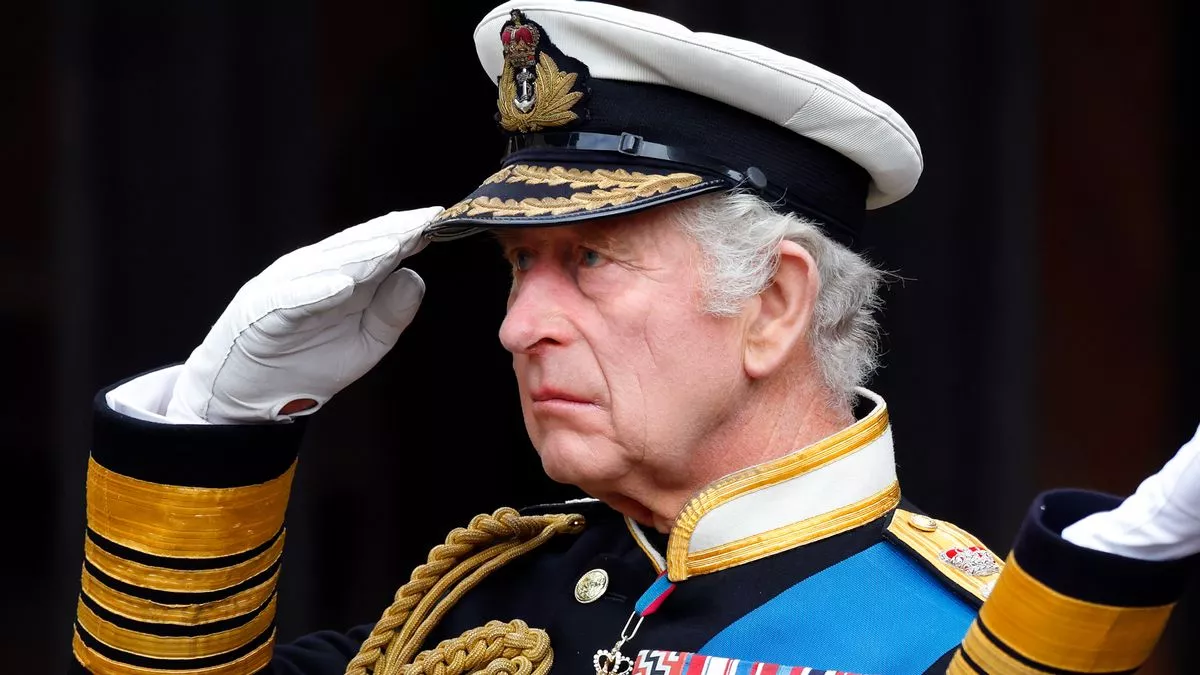King Charles is taking on a sentimental royal role previously held by Queen Elizabeth.
On Friday, the Royal Welsh Regiment of the British Army announced that the King, 75, is its new Colonel-in-Chief.
“HM The King has been pleased to take on the role of Colonel-in-Chief of The Royal Welsh regiment, in succession to the late Queen who held this role with great affection for 16 years,” a statement said.
“It is especially dear to HM The King as his first military appointment as Prince of Wales was as Colonel-in-Chief of the Royal Regiment of Wales, a position he held for 37 years before their amalgamation in 2006,” the announcement added.
The timing of the news was thoughtful as March 1 is St. David’s Day, the feast day celebrating Wales’ patron saint. As the regiment outlined, Charles’ first military appointment at age 20 was as the honorary colonel for the Royal Regiment of Wales until it merged with the Royal Welch Fusiliers to become the Royal Welsh in 2006.
King Charles has long had a special relationship with the U.K. nation, as he was the Prince of Wales (the title traditionally given to the male heir to the British throne) for most of his life until he acceded to the throne upon his mother’s death in September 2022. King Charles used his first speech as sovereign to pronounce his son Prince William as the Prince of Wales, and William, 41, made a solo trip to Wrexham on Friday for the St. David’s Day festivities.
Queen Elizabeth had most recently visited the Royal Welsh to mark St. David’s Day in March 2017, where she met one of the regiment’s mascot goats at the Lucknow Barracks in Tidworth, England. Queen Elizabeth reviewed the regiment in her role as Colonel-in-Chief, and leeks were presented to the soldiers for St. David’s Day. It’s tradition to wear a leek, Saint David’s personal symbol, or daffodil on the feast day, as both are closely associated with the nation, and Prince William sported a daffodil in Wrexham on Friday.
When Queen Elizabeth died in September 2022, King Charles became Commander-in-Chief of the British military, and he connected with representatives of the Royal Welsh regiment just a week later.
That Sept. 16, he and Queen Camilla were greeted by Sheinkin IV, the goat mascot for the Royal Welsh Third Battallion, at Cardiff Castle during their first visit to Wales of the new royal reign.
While Prince William was out and about in Wales for several engagements on St. David’s Day, the King did not make an outing on the feast day. On Feb. 5, Buckingham Palace announced that the sovereign was diagnosed with cancer following a hospital procedure for benign prostate enlargement. The diagnosis has not been disclosed, but a spokesman confirmed it is not prostate cancer.

The palace statement said that the King had commenced treatment and would postpone public-facing duties while continuing to undertake state business and official paperwork behind the scenes. Two and a half weeks later, he had his first face-to-face audience since the health news announcement via a meeting with U.K. Prime Minister Rishi Sunak at Buckingham Palace.
Sunak said it was “wonderful” to see King Charles looking so well, to which the monarch quipped, “It’s all done with mirrors.”
The prime minister then said, “Well, we’re all behind you. The country’s behind you.”
The King said, “I’ve had so many wonderful messages and cards. It’s reduced me to tears most of the time.”
Soon after, the palace posted a video of the King reading some of the cards from well-wishers, where they seemd to bring a smile to his face.
According to the clip, “The Correspondence Team at Buckingham Palace have received more than 7,000 letters and cards from across the world. The King has been sent a selection in his daily red box of paperwork. Many share their own experience with cancer. Others offer good wishes and advice for a speedy recovery. To everyone who took the time to write, THANK YOU. As His Majesty has said, ‘Such kind thoughts are the greatest comfort and encouragement.’ ’’